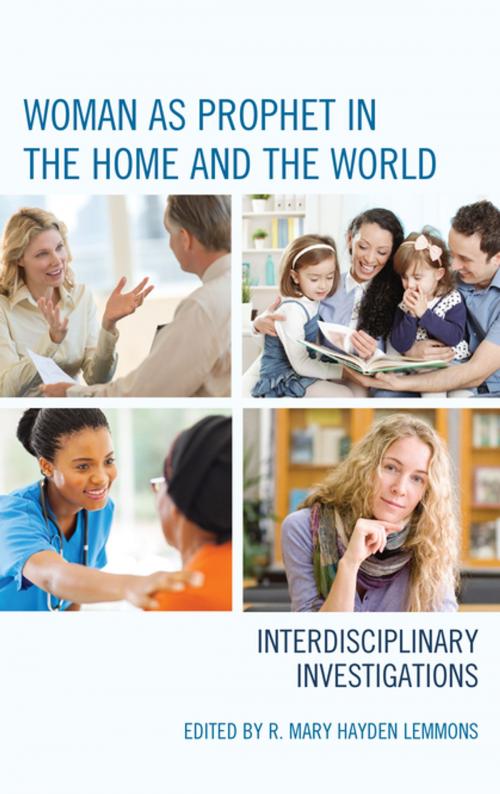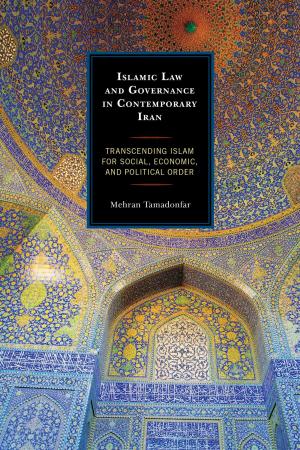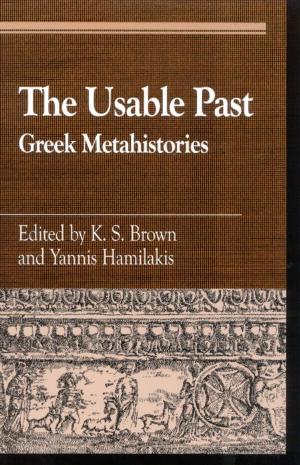Woman as Prophet in the Home and the World
Interdisciplinary Investigations
Nonfiction, Social & Cultural Studies, Social Science, Gender Studies, Feminism & Feminist Theory, Religion & Spirituality, Christianity, Denominations, Catholic, Catholicism| Author: | Peggy Andrews, Christine Falk Dalessio, Mary Eberstadt, Anthony T. Flood, Heidi Giebel, Meg Wilkes Karraker, Anne King, Paul Kucharski, R. Mary Hayden Lemmons, Susan C. Selner-Wright, Richard A. Spinello, Susan Stabile, Deborah Savage, St. Paul Seminary School of Divinity, University of St. Thomas | ISBN: | 9781498542098 |
| Publisher: | Lexington Books | Publication: | September 15, 2016 |
| Imprint: | Lexington Books | Language: | English |
| Author: | Peggy Andrews, Christine Falk Dalessio, Mary Eberstadt, Anthony T. Flood, Heidi Giebel, Meg Wilkes Karraker, Anne King, Paul Kucharski, R. Mary Hayden Lemmons, Susan C. Selner-Wright, Richard A. Spinello, Susan Stabile, Deborah Savage, St. Paul Seminary School of Divinity, University of St. Thomas |
| ISBN: | 9781498542098 |
| Publisher: | Lexington Books |
| Publication: | September 15, 2016 |
| Imprint: | Lexington Books |
| Language: | English |
This first-ever interdisciplinary study of woman as prophet shows that, in these troubling times, ordinary women—especially Christian women—need to function as prophets by proclaiming, in word and deed, the indispensability of lovingly seeking the welfare of others. More specifically, social science shows that the person-centered love prophesied by women prophets is able to meet interpersonal challenges within the home and world, while philosophy and theology establish that women are able to excel as prophets due to the virtuous dispositions inculcated by femininity, the choice to be caring, a God-centered spirituality, and a pro-life humanitarian/personalist feminism that welcomes male collaborators. Facilitating the ability of Christian women to prophesy love are Baptismal graces, Thomistic virtues, and a much needed prophetic Marian ecclesiology based on what John Paul II calls the “prophetism of femininity.”
These interdisciplinary findings provide an essential resource for educators and students of humanity, the theology of women, and evangelization. These findings emerge, first, from an investigation into the cognitive and ontological underpinnings of what John Paul II called the “feminine genius.” A second set of findings emerges from exploring the prophetic dimensions of the feminine genius, secular feminism’s need to adopt the insights of Christianity, and the ability of femininity’s prophetism to recast both femininity and feminism as Marian prophecies. A third set of findings arises from analyzing the spirituality of women prophets within the Christian tradition by considering the conditions necessary for prophesying, explicating requisite Thomistic virtues, and delving into the spirituality of Hildegard, Catherine of Siena, Julian of Norwich, and Teresa of Avila. A fourth set of findings arises from innovative studies of polarization, secularization, lust, romantic love, the conditions whereby mothers with careers can flourish, and the ability of nuns to combat racism in a small Midwestern town.
Overall, these interdisciplinary investigations explicate the theology of women and show that women who prophesy love, either in the order of grace or nature, can help heal lives, families, and culture.
This first-ever interdisciplinary study of woman as prophet shows that, in these troubling times, ordinary women—especially Christian women—need to function as prophets by proclaiming, in word and deed, the indispensability of lovingly seeking the welfare of others. More specifically, social science shows that the person-centered love prophesied by women prophets is able to meet interpersonal challenges within the home and world, while philosophy and theology establish that women are able to excel as prophets due to the virtuous dispositions inculcated by femininity, the choice to be caring, a God-centered spirituality, and a pro-life humanitarian/personalist feminism that welcomes male collaborators. Facilitating the ability of Christian women to prophesy love are Baptismal graces, Thomistic virtues, and a much needed prophetic Marian ecclesiology based on what John Paul II calls the “prophetism of femininity.”
These interdisciplinary findings provide an essential resource for educators and students of humanity, the theology of women, and evangelization. These findings emerge, first, from an investigation into the cognitive and ontological underpinnings of what John Paul II called the “feminine genius.” A second set of findings emerges from exploring the prophetic dimensions of the feminine genius, secular feminism’s need to adopt the insights of Christianity, and the ability of femininity’s prophetism to recast both femininity and feminism as Marian prophecies. A third set of findings arises from analyzing the spirituality of women prophets within the Christian tradition by considering the conditions necessary for prophesying, explicating requisite Thomistic virtues, and delving into the spirituality of Hildegard, Catherine of Siena, Julian of Norwich, and Teresa of Avila. A fourth set of findings arises from innovative studies of polarization, secularization, lust, romantic love, the conditions whereby mothers with careers can flourish, and the ability of nuns to combat racism in a small Midwestern town.
Overall, these interdisciplinary investigations explicate the theology of women and show that women who prophesy love, either in the order of grace or nature, can help heal lives, families, and culture.















